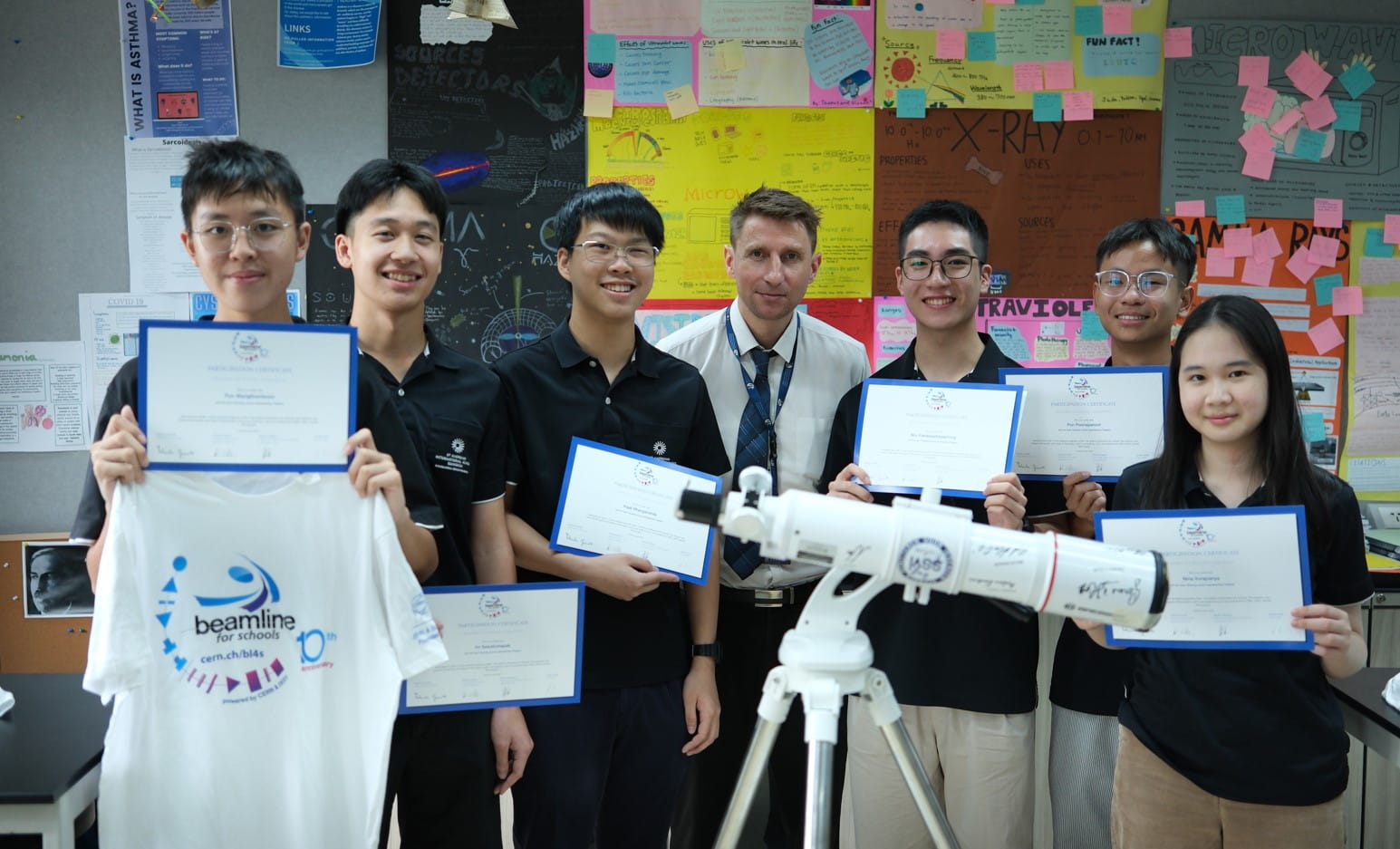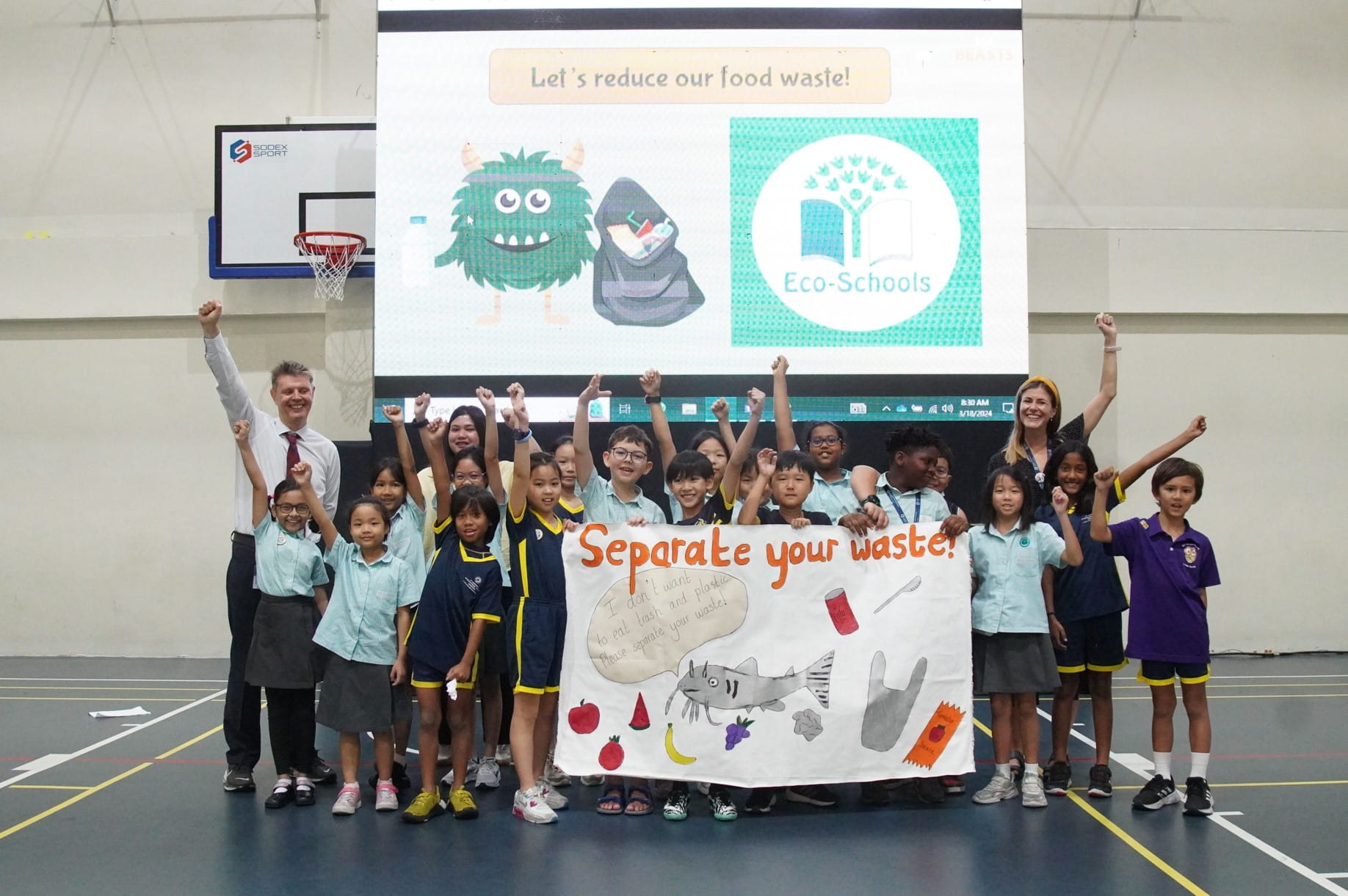At St Andrews International School Bangkok, our culture is one that ignites passions and feeds curiosity. We value innovation in all forms. We encourage our learners to think critically and pursue projects that reflect their passions. In this spirit, we are delighted to share an fascinating project from one of our senior students, Pun (Year 13).
Over the summer of 2024, Pun came up with an ambitious project: an AI-powered waste sorting system. Hours of research and many tests later, with help from his classmate Taewon they finally got the system to work and the project is now complete.This ‘smart trash bin’ showcases the remarkable potential our students have to drive innovation. Not only does this project reflect the sense of environmental responsibility we instill in all our students, it also inspires forward thinking and sustainability. How can we have a positive relationship with technology? How can we use the latest advances in technology to better our world?

Have a look at Pun's smart 'Green Bin’ project below.
“The idea came from attending this Red Cross fair where I saw people stationed at the trash cans are were collecting the trash that people were throwing because they were all in the wrong places. My aspiration in the future is to continue making engineering projects that will help the environment. I want to pursue engineering in college. I think Taewon does, too.
Trash waste has become an increasingly serious problem over the past few decades (20 billion tons are produced globally each year). One of the main ways to combat this problem is through recycling. However, recycling has not been as effective as it could be (80% of recyclable material ends up in the landfill). The major reason for this is due to incorrect recycling, or contamination.
My proposed solution is to make a trash bin that automatically sorts any waste a person places into it. By using Artificial intelligence (AI) technology to detect the trash types, we take the options out of the individual's hand, removing the possibility of incorrect disposal. This will reduce trash contamination and make the recycling process effortless for the users.
Working with AI was challenging, especially since I had no prior experience in the field. We tried many different AI models and datasets, and trained the AI more than 10 times to optimise the accuracy and speed. The rest of the project was also quite challenging. Programming on the Raspberry Pi was difficult due to it using the Linux systems, which I was unfamiliar with. I also took a lot of time designing and building the exterior and mechanism. YouTube videos and taking online courses on object detection were quite helpful.
The collaboration I did with Taewon was that he was responsible for coordinating with the school: Setting it up at school, planning the assembly, and gathering the data. I was the one who built the bin and brought it home to improve it based on the feedback I got.
This project has taught me a lot about programming the AI software, but it taught me even more about adapting strategies. I had to try out many different AI models and tweak their parameters before optimising the accuracy of the model. I discovered that I love creating these things. I thought making many models of AI or 3D printing for the bin was going to be tedious, but really, I enjoyed the entire process of making it.”
— Pun, Year 13







